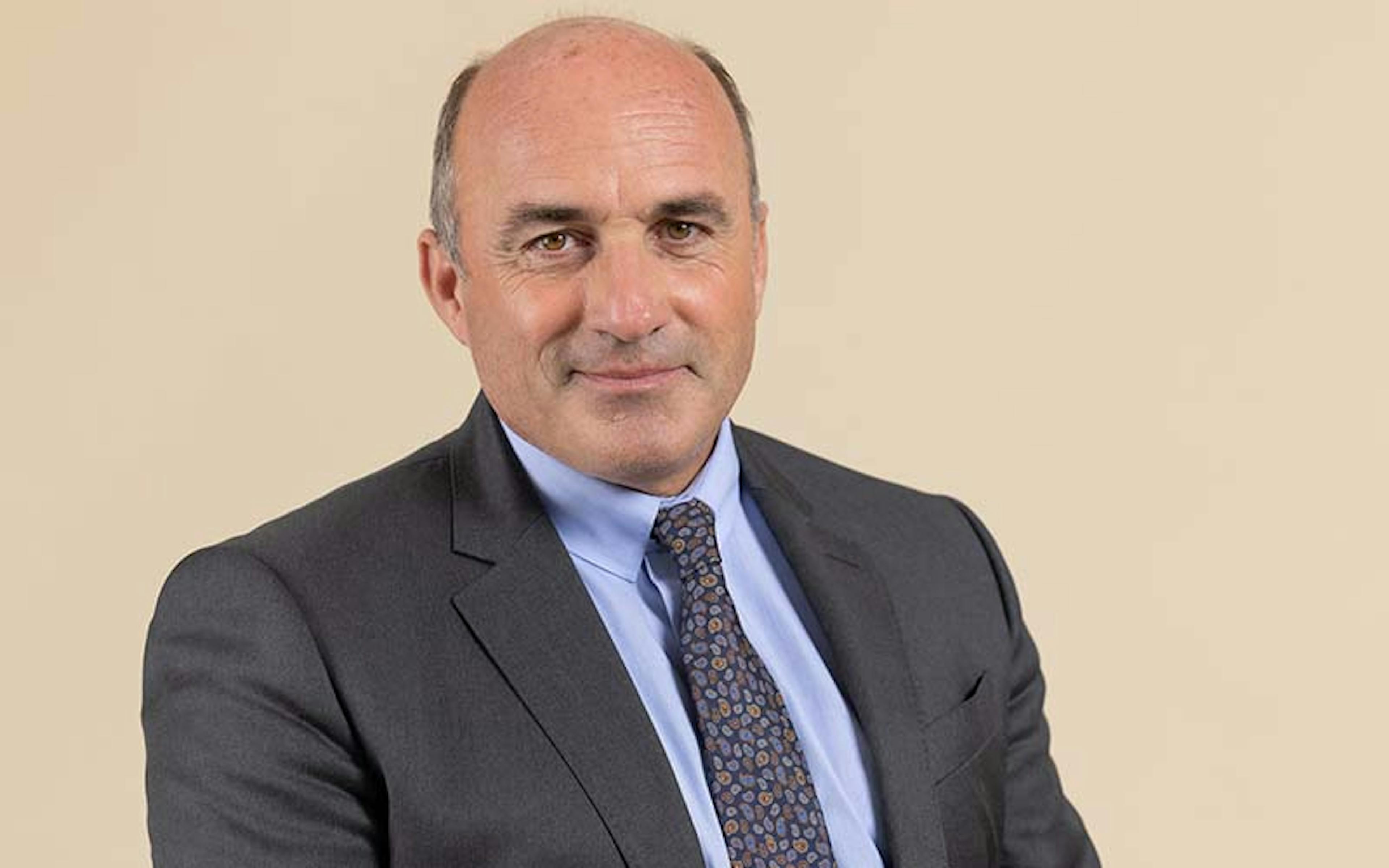![[Main Media] [Carmignac Note]](https://carmignac.imgix.net/uploads/article/0001/03/%5BMain-Media%5D-Carmignac%27s-Note_Market_Analysis.jpg?auto=format%2Ccompress&crop=faces&fit=crop&w=3840)
Does Putin’s invasion of Ukraine mark the dawn of a new economic order?

Frédéric Leroux, a member of Carmignac’s strategic investment committee, outlines the financial and economic consequences that the war in Ukraine will likely have for investors.
What was your key takeaway from last month?
Frédéric Leroux: For me, like for everyone, the main development last month was Russia’s invasion of Ukraine. This decisive event will have major implications, initially humanitarian and subsequently economic. It caught the vast majority of western observers off guard – including asset managers like us.
How did the invasion impact financial markets?
F.L.: Russian debt instruments lost between 60% and 80% of their value almost immediately. Russian companies listed in the UK – mainly banks and producers of oil and other industrial commodities – saw their stock prices fall 92% to 99% between 16 February and 1 March, the last business day before trading was suspended. At the same time, natural gas prices in Europe temporarily shot up by a factor of 2.5 and oil prices jumped by 55%.
And what was the impact for Carmignac?
F.L.: Our bond funds held Russian debt in their portfolios at the time of the invasion, at a weighting that was reduced yet detrimental. Reduced, in light of the healthy fundamentals of Russian debt before the war broke out unexpectedly, and detrimental because of the sanctions that western countries have introduced against Russia. These holdings have already impacted the net asset values of some of our funds.
Why do you think the markets reacted so abruptly?
F.L.: There are two distinct factors at play. The first is the economic sanctions, which have included introducing a US and UK embargo on the purchase of Russian oil and gas, expelling certain Russian banks from the SWIFT international payments system – meaning account holders can’t receive payment for their sales – and freezing the assets that Russia’s central bank holds abroad.
And Moscow has taken a series of retaliatory measures in response.
F.L.: Exactly. Russian companies soon won’t be able to make debt payments in any currency other than the rouble, and the government may ban the export of some commodities – which could engender more bottlenecks in global supply chains.
It sounds like the sanctions and retaliatory measures could have major repercussions on the global economy
F.L.: The sanctions will weigh heavily on Russia’s economy and could rapidly bring it to a standstill. And the direct effect of those sanctions, coupled with the retaliatory measures, will also impact the rest of the world and accentuate two trends which had started before the conflict: rising inflation and slowing economic growth.
And what’s the second factor?
F.L.: The second factor behind the abrupt adjustment in the prices of Russian assets and fossil fuels relates to the growing movement by investors around the world to incorporate environmental, social, and governance (ESG) criteria into their investment decisions, as part of efforts to promote sustainable finance. Asset managers who have committed to socially responsible investing – a category which includes us at Carmignac – cannot now keep investing in Russia as if nothing has happened.
Given the circumstances, investing in Russian stocks or funding the Russian government can indeed be problematic.
F.L.: At Carmignac, we have decided to refrain from purchasing Russian assets until further notice. This same decision has been taken by many other investors, putting additional downwards pressure on the prices of Russian securities and causing them to depreciate much further than would be warranted by the sanctions alone. It also reflects society’s new aspiration to an economy that’s more ethical and puts less of a priority on immediate financial gains.
Based on what you say, the economic impact from the war in Ukraine stands to be huge.
F.L.: The conflict and decisions taken in response are already showing us the potentially devastating consequences the war can have on the global economy. This could have the advantage of bringing about a negotiated resolution to the conflict more quickly.
Inflation was a key concern before the war broke out. What’s the outlook now?
F.L.: Inflation is even more of a worry than before. Policies that governments have announced or already introduced could fuel inflation by expanding the range of price drivers, such as a swifter transition to renewable energy, higher defence spending, new energy procurement routes, and the repatriation of production plants. These shifts will underpin higher prices for years to come before the benefits start to be seen in terms of economic efficiency. Viewed from this perspective, the war in Ukraine could be ushering in a new economic order.
What do you mean?
F.L.: The past four decades have seen a slowdown in the rate of consumer-price inflation, due to extensive globalisation and favourable demographics. But the war in Ukraine marks the end of this trend. Going forward, we could start to see a new economic order based on the de-integration of global economies as countries erect barriers and prioritise energy and manufacturing independence – an issue which the pandemic and now the geopolitical tensions have propelled to the top of the agenda.
And what would this new order look like?
F.L.: This long-term trend reversal from disinflation to secular inflation will restore the appeal of long-forgotten sectors of the old economy, provided that the many constraints involved in bringing them back on domestic soil are rationally assessed. Many of today’s technological advancements should help restore these sectors and give them a formidable level of economic efficiency, at the end of the day. The world after COVID-19 and the invasion of Ukraine?
Related articles

Shining in times of crisis: Why gold has never been a more valuable part of our portfolios

